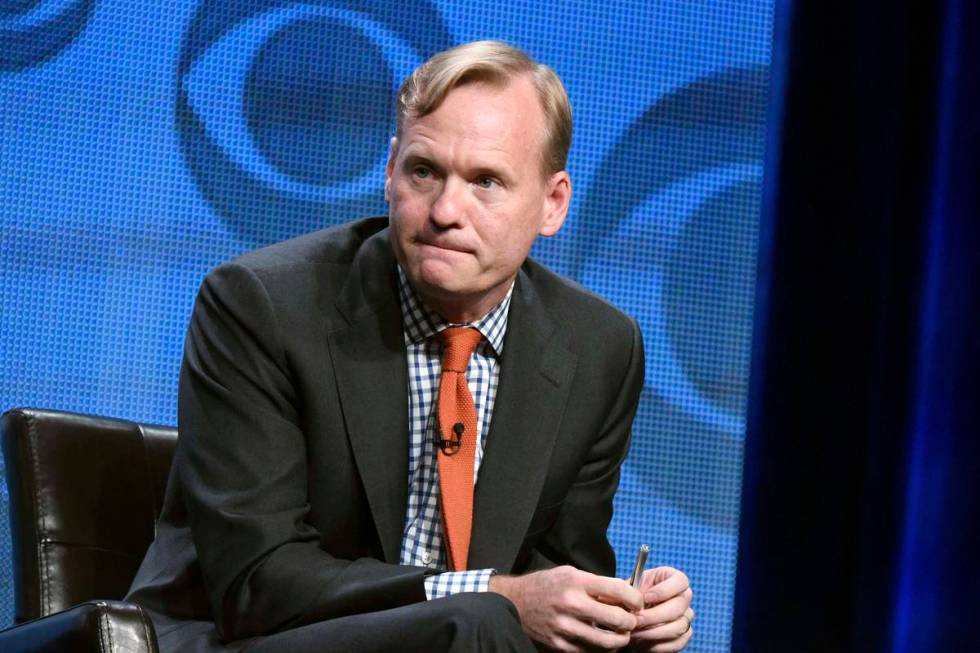Voting for president: Have we been doing it all wrong?

On Tuesday, voters in Nevada and across the country will go to the polls to choose the next president of the United States.
Is there a chance that they’ll be doing it wrong?
In his newest book, “The Hardest Job in the World: The American Presidency,” John Dickerson of CBS’s “60 Minutes” argues voters generally don’t evaluate candidates based on what the job really entails.
“We have come to run campaigns in a way that drives us further and further from a process that measures for the attributes of the job, largely because we’ve become fixated on the immediate responses to events rather than having a longer-term view,” Dickerson said.
His comments came during a panel taped for the virtual 2020 Las Vegas Book Festival, which was co-sponsored by the Las Vegas Review-Journal.
Dickerson said one of the most important aspects of the president’s job is the ability to build a good team to carry out her or his agenda, yet potential presidents are almost never asked about their skills in recruiting or managing people. Voters, he said, would be well served to think of the presidency as an organization, instead of focusing on the one person seeking the top job.
“Like (“The West Wing” creator) Aaron Sorkin, we all need a central character, and that’s one of the things we have to resist when we seek to lump every national question in the president’s lap,” he said.
In addition, he said, the ability to prioritize issues and concentrate relentlessly on three or four major areas — while forsaking others — is a skill that successful presidents should have.
Washington experience preferred
If traits like reason, temperament and restraint in the use of power are positive attributes, Dickerson warned against some negative ones, including a person seeking the job who hasn’t been tested in the crucible of a tough situation for a significant period. In that sense, he said, Washington government experience isn’t crucial, but it is certainly helpful. Yet, people constantly campaign for the position of president by denouncing Washington insiders.
“There’s no question we get the presidents we deserve, based on the way we pick them,” he said. “So maybe if we change the way we pick them, we might get more deserving presidents. I just don’t think there’s an alternative.”
Despite the deep polarization of Washington, D.C., Dickerson argues the ability to work across party lines and in partnership with the Congress after the election is over is essential for a president to be successful. That’s true even if the partisan base that just helped win the election isn’t entirely happy about the results, he said.
“Basically, a president is going to have to disappoint their supporters right away … because every decision a president makes at the beginning of his administration shapes the field on which those future decisions are going to be made,” he said. “So if Donald Trump had started off by trying to put together a bipartisan infrastructure deal with Democrats, he might have been able to succeed and that would have … maybe changed the environment for everything he wanted to do on health care.”
Comity elusive
On the other hand, even if an infrastructure deal was done, Dickerson allows for the possibility that the polar opposite views on health care may have scuttled any chance of agreement on that issue. “We don’t know, because it wasn’t tried. And Joe Biden is promising to try. So we’ll see, if he’s elected, if that can be done.”
But before anybody is elected, Dickerson’s book argues for a wholesale revision of the way voters think about the presidency, the way the president works with Congress and the desirability of compromise for the common good over partisan combat as political theater. That starts with evaluating candidates more pragmatically than voters may be used to doing.
“To get at the really complicated question of American democracy, you have to put your emotions aside for a moment, or think more long term and not be distracted by the short term as much,” he said. “It’s a very hard thing to do, to make that argument in the midst of the constant, steady diet of news cycle freneticism that’s part of our modern campaign.”
Contact Steve Sebelius at SSebelius@reviewjournal.com or 702-383-0253. Follow @SteveSebelius on Twitter.